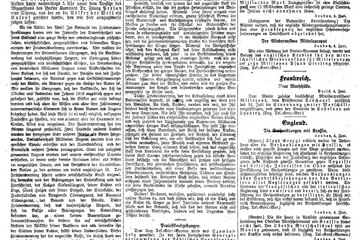Having suffered great distress at the hands of the Central Powers, the Balkan states turned out to be the victors of a four-year long mass slaughter. Apart from the territorial expansions of Romania, the Slovenes and Croats in particular flocked around Serbia, eager to establish a multi-ethnic state of the Southern Slavs. As in other regions, the political map of the Balkans was indeed redrawn without ensuring the permanent guarantee of stability. The ‘Great War’ transformed itself in this way into different, smaller zones of conflict. At the same time it became obvious that the problems that had already resurfaced before 1914 were in no way solved, but had in many cases even deteriorated. Under such circumstances, the events at the beginning of the 20th century point ultimately towards its conclusion, to the national hatreds and ‘ethnic cleansings’ of the 1990s.


